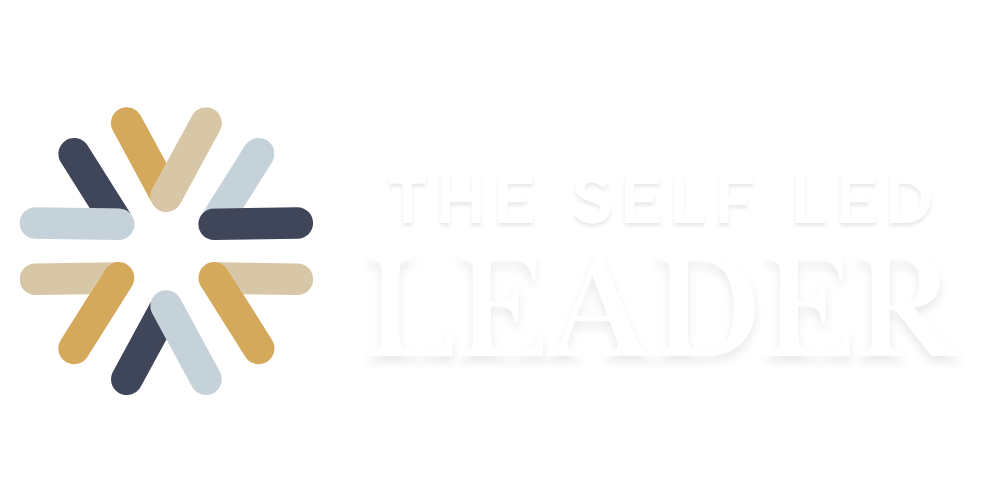There’s a similar vein that all external success belongs to, and it goes like this: “If I figure out how to do more, I will be more successful.”
The logic is tempting – give more, get more. Longer hours at work equal more profit added to the bottom line. The more books I read, the more intelligent or successful I will be. If I schedule weekly date nights with my spouse, the better my sex life will be. Yeah, maybe.
As a society, we’re addicted to the illusion of control that what we put in or don’t put into the formula impacts our results, such as more money, success, being smarter, intimacy with our spouse, etc. But this assumes that all things are linear and that all things are meant to get results in the ways I just described.
I know plenty of 80-hour-a-week workers barely making it (in different ways – emotionally, relationally, spiritually, and even financially).
I read at least 50 books last year, yet I swear I know less and less about why people do what they do and why I do what I do.
I hear the sage advice repeatedly that married couples should “date” each other every week. Yet, if we spied on these sacred date nights, we might see two people not engrossed in each other’s words but in the memes and TikToks streaming from their phones.
Those who “life hack” are trying to find an easier and more efficient way to do what they think will make them happy.
What if we didn’t equate more work with success? What if we didn’t assume I need to know more to understand?
What if, when the world zigs, you zag?
What I am proposing goes beyond “The Pomodoro Technique” of working for 25 minutes then taking a break for 5 minutes or “Eating That Frog” first thing in the morning, tackling the most challenging task first, or even “The Two-Minute Rule” that forces you to do that small thing immediately rather than scheduling it for later.
What I am proposing has taken me years of learning, grappling, accepting, forgetting, and remembering. It will bristle against everything you’ve been taught and led to believe will help you be successful, find happiness, and live a better life.
I’m proposing that you slow down and do less.
Now, before you think my claims are far-fetched and unattainable, there are three historical figures I want to introduce you to who knew a thing or two about slowing down and doing less: Benjamin Franklin, Madame Guyon, and St. Ignatius of Loyola.
While separated by centuries and distinct in their approaches, these three developed remarkably similar systems for daily reflection, personal growth, and finding meaning beyond mere productivity.
Benjamin Franklin: A Quest to be a Better Person
Benjamin Franklin is described as an American polymath (a person with a wide range of knowledge or learning). In 1726, at age 20, he developed a system to develop his character.
Franklin was the OG of the personal development industry. In his attempt to become a better person, he created a schedule for living that he measured himself against. Check it out.
Ben’s Daily Rhythm:
- 5 a.m. – 8 a.m.: Wake up, shower/get dressed, and pray or express gratitude; plan out the day’s tasks and set intentions; work on whatever you’re currently learning or studying; and then eat breakfast.
- 8 a.m. – Noon: Work.
- Noon-2 p.m.: Review financial accounts (online banking, check revenue, pay bills) and eat lunch. Please note that Ben might be eating while he works, or he may only look over his accounts for 10 minutes, leaving 1 hour and 50 minutes to eat and enjoy lunch. I’ll leave it up to you to decide.
- 2 p.m. – 6 p.m.: Work
- 6 p.m.– 9 p.m.: Clean up and organize your space, eat dinner, and enjoy some form of relaxation, entertainment (hello Netflix), or social interaction (Pickleball, anyone?). Then, examine the day by reflecting on how the day went, what you accomplished, and what you could improve.
- 10 p.m.—5 a.m.: Sleep

What I find most fascinating about Benjamin Franklin is his emphasis on two questions that began and ended his day:
In the morning, he would ask himself, “What good shall I do this day?” and in the evening, he pondered, “What good have I done today?
Franklin was growing in his relational, emotional, and spiritual IQ.
He read leisurely in the middle of the day. He dined three times. No stuck in traffic rushing to another meeting eating. He dined – for hours!
He rested, recreated, and was relational each evening. He began his day addressing “Powerful Goodness,” which I believe was his way of expressing gratitude to God and indulging in the intimate language of the Divine (prayer).
Likewise, he was never afraid to review the day – where did he fall off track? Where did he show excellence in the world?
Franklin’s imposing morning and evening questions reminded me of another person who developed a systematic way to personal improvement through spirituality that fostered intimacy with God.
St. Ignatius of Loyola: Spiritual Exercises for Inner Transformation
Nearly two centuries before Franklin, Ignatius of Loyola, a 16th-century Spanish priest and theologian, created a similar framework for daily reflection.
After a battlefield injury transformed his life from soldier to spiritual seeker, Ignatius developed a systematic approach to connecting with God through the Prayer of Examen.
The Examen is built on Ignatius’s core insight that God can be found in everyday moments, not just formal religious settings. His practice involves:
1. Preparation for Prayer
Find a quiet place where you won’t be disturbed. Take a comfortable position and become aware of God’s presence. Some people light a candle or use another physical reminder of God’s presence.
2. Express Gratitude
Begin by acknowledging what you’re thankful for from the day. Review specific moments, encounters, and experiences for which you feel grateful. Don’t forget that gratitude comes in big and small packages. Sometimes we need to be reawakened to the gifts we’ve already been given.
- A refrigerator that protects your food until you’re ready to consume it.
- Breath in your lungs that you don’t need to think about. It’s just there.
- The stranger who held the door for you.
- The snuggle from your pet, spouse, child, or friend.
3. Request Insight
Ask the Holy Spirit for guidance to help you see your day clearly and honestly, beyond your own biases and self-deception.
4. Review Your Day
Mentally walk through your day chronologically, paying attention to:
- Your emotions at different points
- Interactions with others
- Decisions you made
- Moments where you felt God’s presence
- Instances where you turned away from love
5. Examine Your Actions
Look for patterns in your behavior, considering:
- When did you act with love?
- When did you miss opportunities to do good?
- What temptations did you face?
- What choices would you make differently?
6. Express Remorse
Acknowledge the moments where you fell short, expressing sorrow not out of shame but out of a desire to grow.
7. Seek Forgiveness
Ask for forgiveness for failings and shortcomings recognized during your review.
8. Look Forward
Consider tomorrow and how you might respond more lovingly to similar situations. Make specific resolutions for growth.
9. End with Hope
End with a prayer expressing hope and confidence in God’s ongoing work in your life.
The entire practice typically takes 15-20 minutes, though it can be adapted to different time frames. Many people practice the Examen at the end of the day, but it can be done at any regular time that suits your schedule.
Does this practice remind you of anyone?
It’s hard to say whether Ignatius’ Prayer of Examen, created some 200 years before Franklin’s daily routine, is connected. Still, it stands to reason that the intellectually curious Franklin would have encountered Ignatius’s Prayer of Examen through his wide-ranging curiosities. Franklin chose to focus on moral improvement rather than spiritual growth; however, look at the similarities:
- Both involve structured daily reflection.
- Both include examining one’s actions and behaviors.
- Both ask questions about what was done well and what needs improvement.
- Both emphasize continuous self-improvement.

Madame Guyon: The Pursuit of God’s Love
Connecting these two male figures is Madame Guyon, a 17th-century French mystic whose “A Mother’s Advice to Her Daughter” outlines a daily spiritual practice similar to Franklin’s routine and Ignatius’s Examen. Despite coming from different centuries, backgrounds, and spiritual traditions, Guyon’s advice includes:
- Establishing a reasonable bedtime (around 10 p.m.)
- Reading spiritual texts with depth rather than speed
- Spending quality time with friends
- Recollecting the day through prayer
- Examining thoughts and actions before sleep

The Common Thread: Reflection, Intention, Balance
What unites these three historical figures across time is their recognition that personal growth—whether moral, spiritual, or practical—requires deliberate daily practice and reflection. All three emphasized:
- Structured daily rhythms that balance work with rest, action with contemplation
- Regular self-examination to recognize patterns and growth opportunities
- Intentional beginnings and endings to each day
- A balance between outer accomplishment and inner development
- Gradual, consistent improvement rather than a dramatic overnight change
Rather than “life hacking” their way to success through more activity, all three discovered the paradoxical wisdom that meaningful growth often requires slowing down and doing less—but with greater awareness, intention, and consistency.
Their collective wisdom offers a powerful alternative to our culture’s obsession with productivity hacks and constant acceleration.
Perhaps true transformation comes not from doing more but being more present with what we already do.





